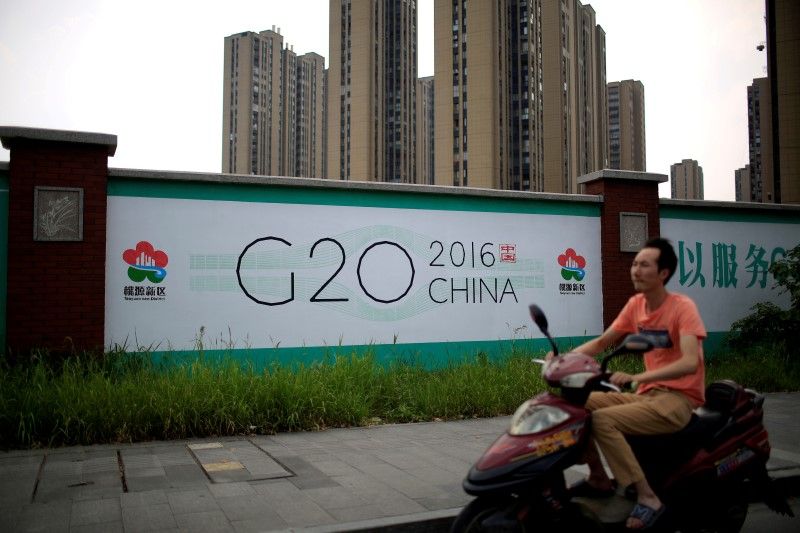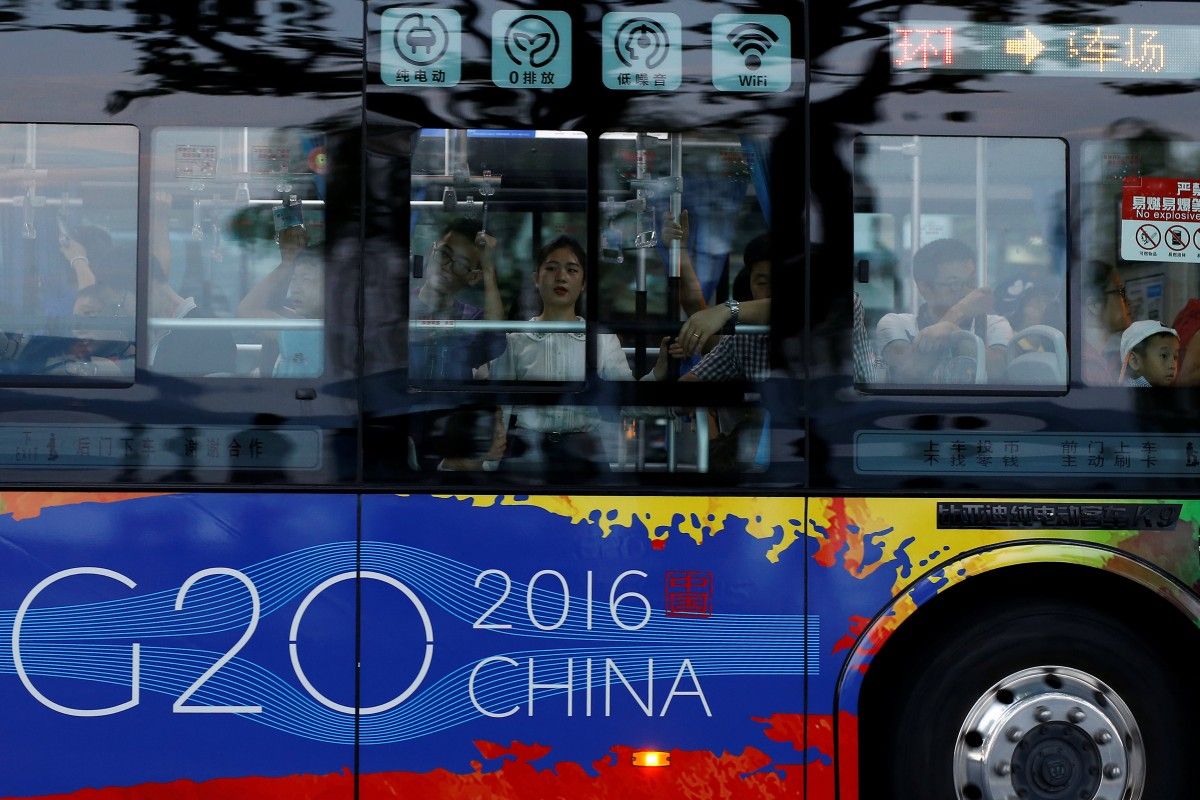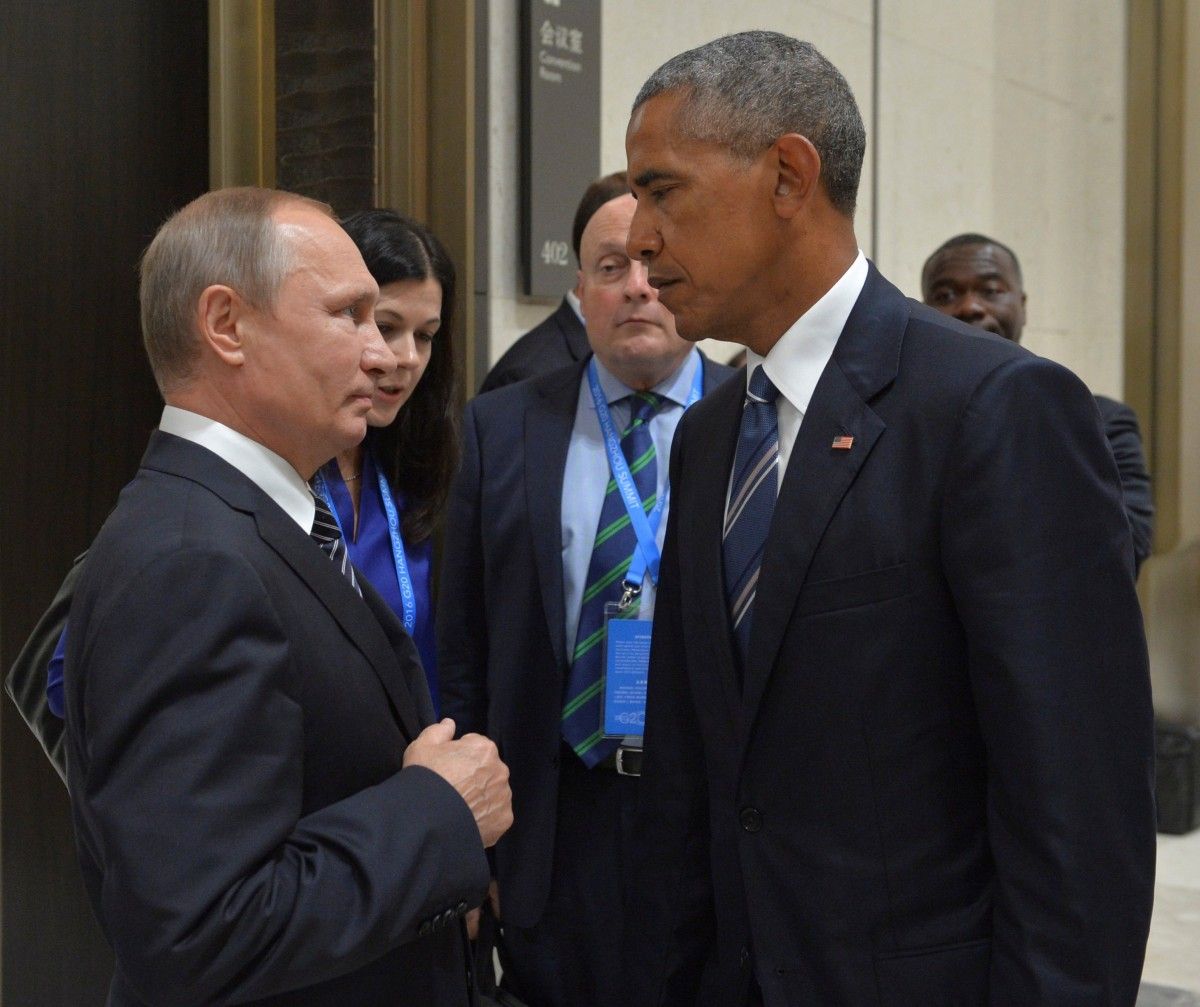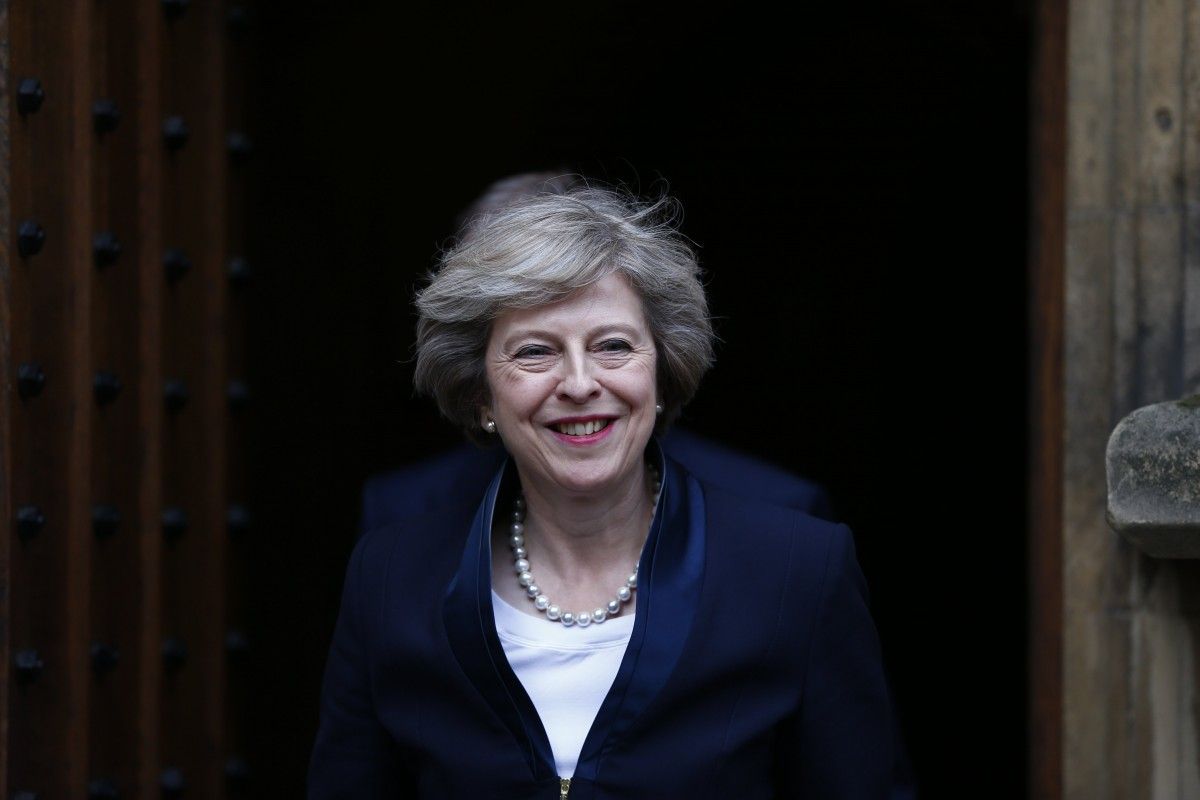
Ukraine issue at G20
Ukraine is not a member of G20. But in 2016, the Ukrainian issue is repeatedly being raised on the sidelines of the G20 Summit.
The meeting of leaders of the world’s top 20 economies, where G20 will discuss matters of building an innovative, healthy, coherent and inclusive global economy, opened in Sunday, September 4, in the Chinese city of Guangzhou.
The annual G20 summit is traditionally devoted to the global economic challenges. But it is no secret that the heads of G20 states will also most certainly use this site to discuss geopolitical issues. In 2016, despite the fact that Ukraine is not part of G20, the “Ukraine issue” is being actively discussed at the summit.
Fake meeting
Ukraine’s Foreign Minister Pavlo Klimkin back in late August has already said that, given that the G20 Summit is to deal with the issues of global and financial stability, and the "problem of the Russian aggression against Ukraine is a fundamental challenge to this stability," Ukraine, albeit not officially, will take its share of the summit’s agenda.
In turn, Russia has interpreted such an opportunity in its own way. Moscow claimed that the summit in China could bring closer the removal of anti-Russian sanctions and lead to concessions on Ukraine on part of the EU and U.S. leaders. As early as August 23, the Kremlin press service reported that disseminated information that, based on a telephone conversation between the Russian president, French president and German Chancellor, they intended to hold a joint meeting in Guangzhou to discuss the situation in Ukraine. On August 29, Putin’s spox Dmitry Peskov said there was no final confirmation that such meeting was scheduled. A few days later, Russian president’s aide Yuriy Ushakov said that there would actually be no meeting between the leaders of Germany, France and Russia in Normandy format [without Ukraine] on the summit’s sidelines. Moreover, according to him, it was Merkel and Hollande who offered to limit the meetings to a bilateral format.
"It is important that Merkel and Hollande did not fall for Putin's provocations and clearly stated that the Normandy format is a format of four, not three. Therefore, Putin will confront the Ukrainian question (the occupation of Crimea, not recognized globally, the issue of the occupied Donbas and implementation of Minsk agreements) at all bilateral meetings..."said first vice-speaker of the Verkhovna Rada, an envoy to the humanitarian subgroup of the Trilateral Contact Group Iryna Gerashchenko.
Professor of Political Science at Kyiv-Mohyla Academy, scientific director of Democratic Initiatives Foundation Oleksiy Haran’ reminds that, by refusing to meet in the Normandy format, the Russian president had wished to demonstrate that he could “discuss Ukraine issues without Ukraine." "Therefore, I believe it is very important that both Hollande and Merkel refused such a meeting," he said.
A Ukrainian diplomat, director of the department of international relations at Maidan of Foreign Affairs Foundation Oleksandr Khara shares this opinion. According to him, the Kremlin's statement that Ukraine’s fate will be decided in China without Ukraine should not have been taken seriously from the very beginning: the Russian media are anything but independent, while Putin's rhetoric is far from democratic. "For example, take a note of what Putin has been saying lately. He says that they [Russia] are so ‘great’ that they choose to only speak with the powers that be,” he said.

While Putin sees Ukraine as some under-state, the Kremlin’s pocket media could not cover the Ukrainian issue, which is actually being raised at the meetings in China, any other way than at an angle of the Ukrainian president not being invited to the dialogue.
However, he said, the Ukraine’s Western partners of Ukraine would have never allowed for the meeting in the Russia-announced format because their standing values and policies differ hugely from those of Vladimir Putin. Actually, this is why special attention should be paid to the bilateral meetings with the Russian leader.
U.S. and Russia
One of these extremely important meetings was one between Putin and his American counterpart, U.S. President Barack Obama. According to Dmitry Peskov, this meeting mainly covered the situation in Syria, but Ukraine was discussed as well. And, in general, the talks were "good", he said.
However, according to the Center for Civil Society Studies CEO Vitaly Kulik, the mere fact that the Obama-Putin meeting has taken place is already “good”, because the Russian leader is still a no-handshake man. "After talking to him, world leaders have to wash their hands with soap and work out new information messages reassuring that no one has given up on democratic interests," he said.
The political scientist believes that during Obama's meeting with Putin such topics were discussed as the treats of escalation in Donbas, the implementation of the Minsk agreements by Russia, as well as the situation in Syria, and deterring terrorism. Kulik is convinced that Obama has sent a clear signal to Putin indicating the strategic line of the State Department, which will not change even after a new president takes over the White House, whoever it may be.
"They talked about the impossibility of the further spread of Russian influence in Eastern Europe, the resolution of conflicts by peaceful means based on the Minsk agreements, the impossibility of removal of sanctions against Russia imposed because of Crimea," he suggests.

At the same time, according to Kulik, the Ukrainian issues are not a priority at the G20 Summit. Even the security issues were discussed on a global scale: first, the non-proliferation of terrorism, then the situation in Syria, and only after that - Ukraine.
Oleksiy Haran’ also believes that the Kremlin's statements about "a good meeting" should not be exaggerated. This is a traditional diplomatic phrase that means little.
According to him, the important thing now is that Ukraine managed not to weaken its position with regard to Russia. "Ukraine has not stepped back, neither in the issues of a so-called special status, nor in the matters of Donbas elections. The sanctions were extended," says Haran’.
It should be recalled that on September 1, the U.S. Treasury has put another 17 individuals and 20 companies into the sanctions lists drawn up in connection with the Crimea annexation and Russian aggression against Ukraine. In particular, those were the contractors of the construction of the Kerch bridge – the passage planned to connect mainland Russia with the occupied peninsula. Also there were officials and representatives of the law enforcement agencies in the temporarily occupied Crimea, and representatives of the Donbas militants.
U.S., EU and UK
By the way, Ukraine was also discussed in other formats on the sidelines of the summit. In particular, the issue was raised (but with no details available) during the meeting of Barack Obama with German Chancellor Angela Merkel and French President Francois Hollande. But, according to Haran’, given that both France and Germany have already started talking about the primacy of security issues, this might be related to the Ukrainian position.
In turn, Vitaly Kulik believes that this meeting could have on its agenda the issue of dynamics of the implementation of the Minsk agreements. Since the existing format of Minsk does not satisfy the parties, while the Normandy format is moving ahead too rough, it is possible that there is an ongoing search of the third format. "More information came in recently about the OSCE considering a military mission. This could also be the subject of talks at the G20 Summit," the expert said.

In addition, it is worth noting that, following a meeting between Barack Obama and British Prime Minister Theresa May, there came a statement that the U.S. and the UK will “continue to withstand Russian aggression in Ukraine.”
Returning to the subject of the implementation of the Minsk agreements, it was discussed during the bilateral meeting between Angela Merkel and Vladimir Putin. Moreover, journalists also took note of Putin's attempt to show signs of "courtesy", which failed to amuse Frau Merkel.
In fact, the president of the Russian Federation wondered whether the Chancellor was tired. In response, Merkel said that he shouldn’t be concerned. "I believe that the issues that we are to discuss are so important that it is good that we now have the possibility to have a possibility to discuss them in a bilateral way. For example, I am referring to Ukraine," she said.
In general, bilateral meetings are yet still to be thoroughly analyzed after the summit. But even at the moment, the experts say that several conclusions can be drawn. For example, despite the overall cool regarding the Russian president, the meetings he has held on the sidelines of the summit suggest that Vladimir Putin managed to re-emerge from diplomatic isolation. However, he has failed to undermine the Normandy format and negotiate bypassing Ukraine.
Iryna Shevchenko

